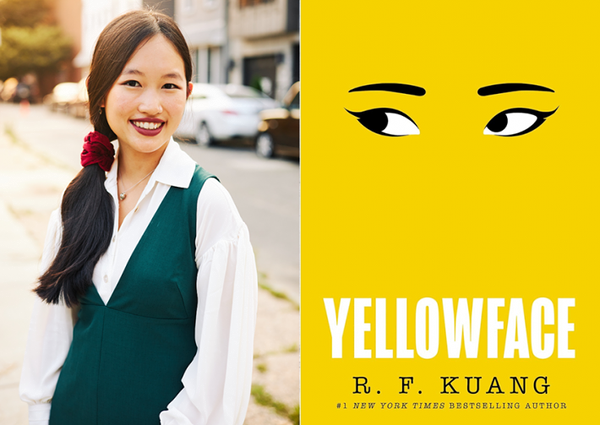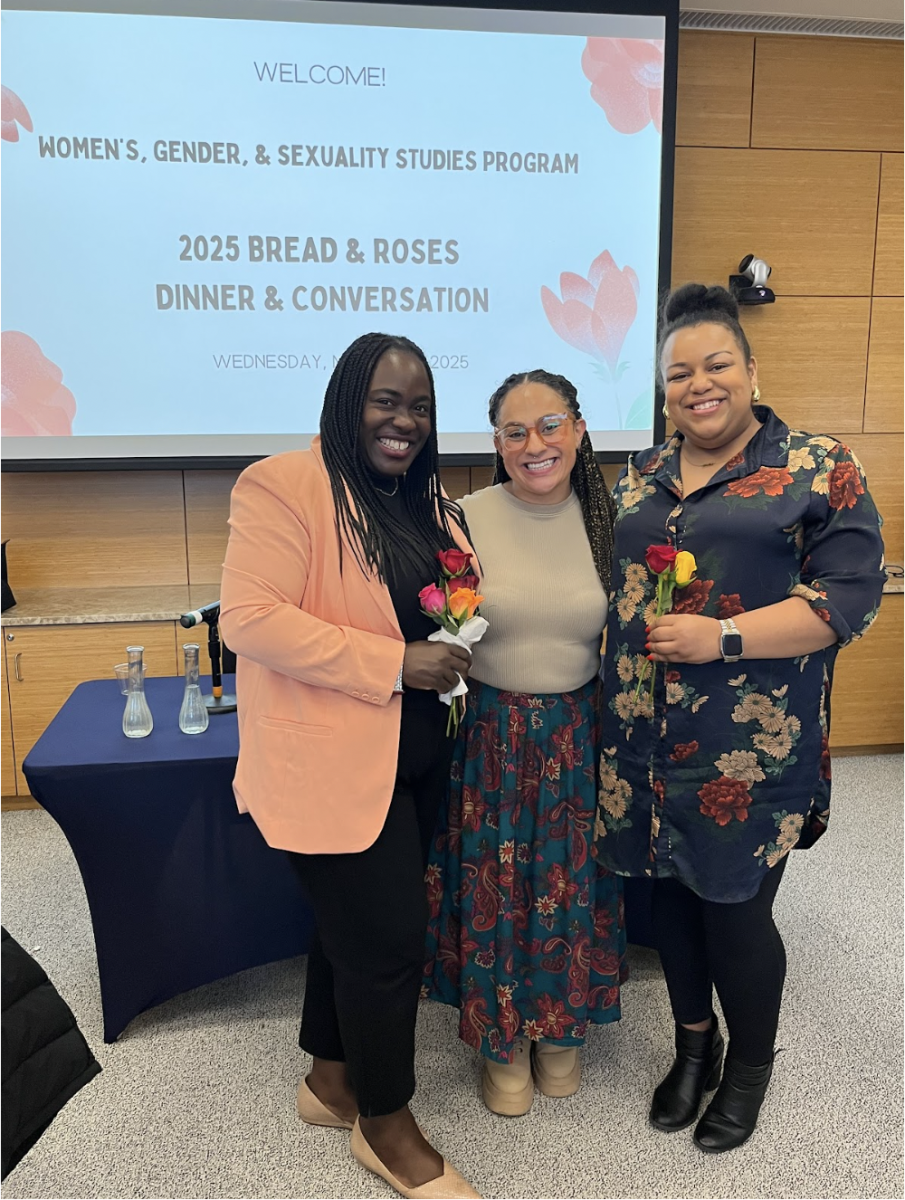
Simmons University had the pleasure of hosting R.F. Kuang’s “Yellowface” event on campus October 7. “Yellowface,” a story exploring the challenges faced by young writers, discussed serious topics through creative irony. Published in 2023, this story is filled with thrill, satire, suspense and confusion.
Kuang evidently captivated the entire room, and her train of thoughts were conveyed seamlessly. She spoke with delight and gave aspirations to a room of impressionable writers.
The event started off with an author introduction, which included the secrets to writing “Yellowface.” Exemplified by protagonist June, writing was described by Kuang as the identities and voices of others. Kuang became vulnerable when recalling her 2020 creative crisis. She recalls, “the ghosts of my old characters,” holding her back. The repetition of the same style was described by Kuang as “creative death,” and typical fantasy sounds “tight and clean.”
She brought up an analogy, comparing adopting an accent in a new city to finding a new voice in writing. Characters like June come with their own challenges of where to draw the line. When describing how June’s actions should be perceived, Kuang claimed “not to be seen as mentally ill, but rather as emotional extremes.”
In the Q&A with the audience, Kuang not only answered on behalf of her writing, but also her marketing. She validated the audience’s suspicions that most find books and authors through social media, saying, “the craft matters the most, not the promotion.”
Kuang emphasized how being part of the millennial generation makes TikTok a difficult place to market. She also stated that “publishers beg their authors to market on social media.”
This conversation then led to the infamous protagonist. Kuang shared that June’s early experiences as a writer were based on herself. The industry can be cutthroat, and June exemplified many beginner’s compulsive thoughts. When describing Athens’ death via choking, Kuang revealed she is “voiceless as an absent and not-present character.”
The topic of plagiarism is persistent throughout the book’s entirety. Kuang left us with this: “continuous imputation can help us find a unique literary voice.”
CORRECTION: Oct. 15, 2024
A previous version of this article referred to Kuang as part of the boomer generation instead of the millennial generation. This part has since been fixed and all other content remains the same.








